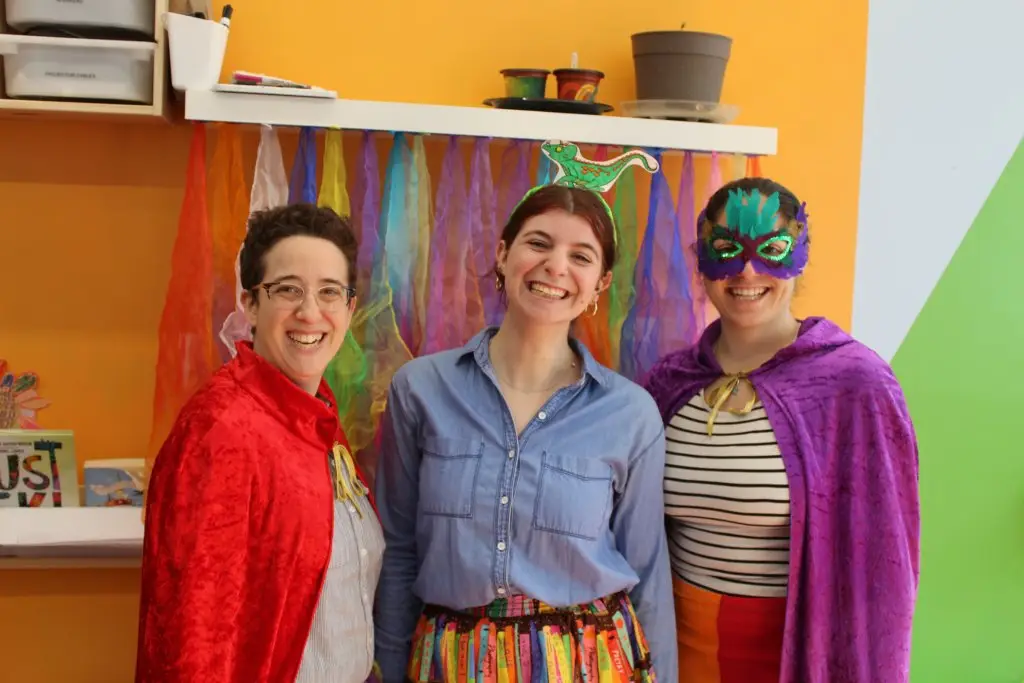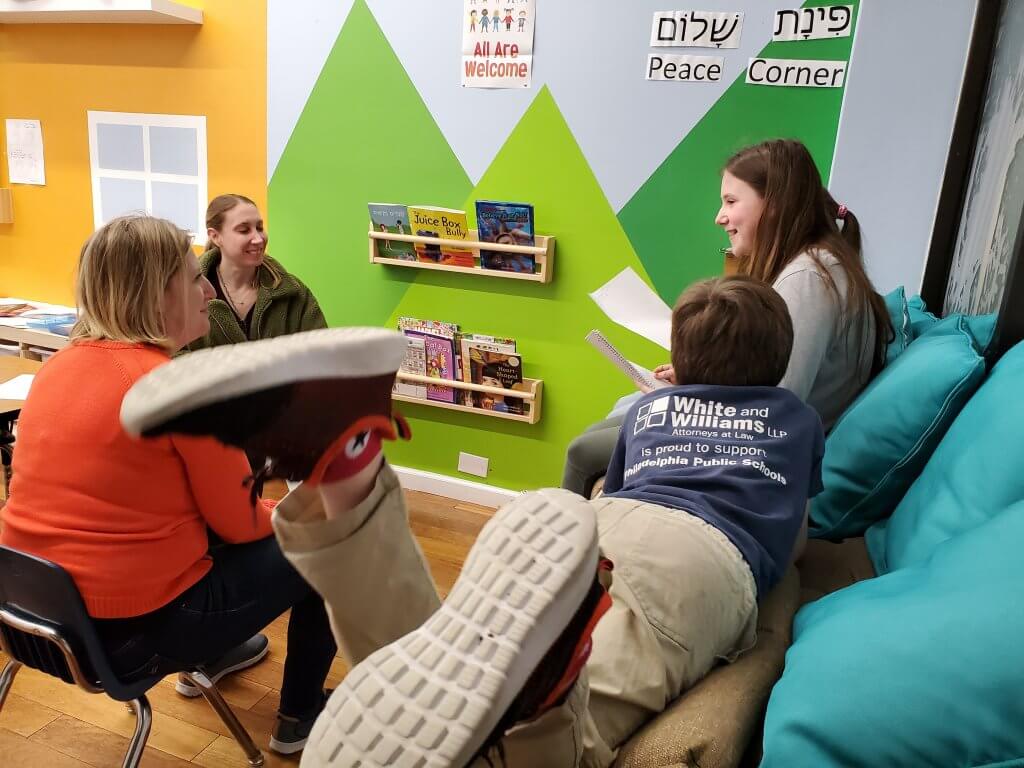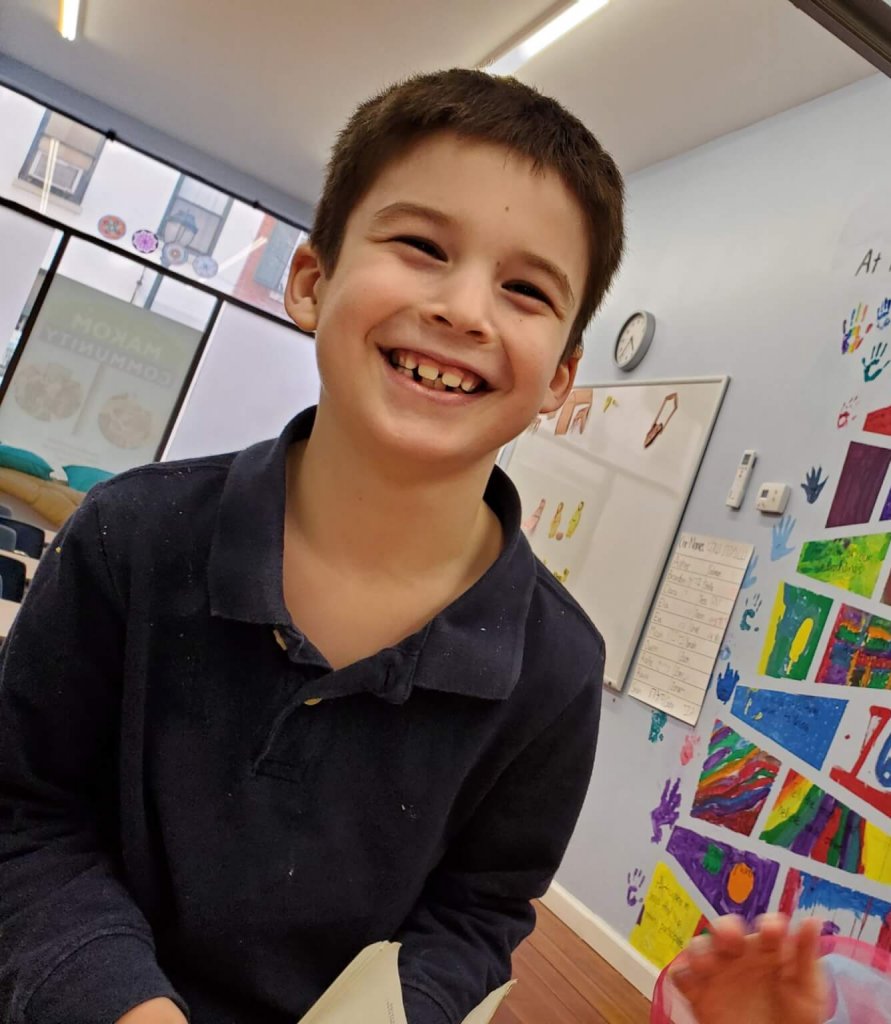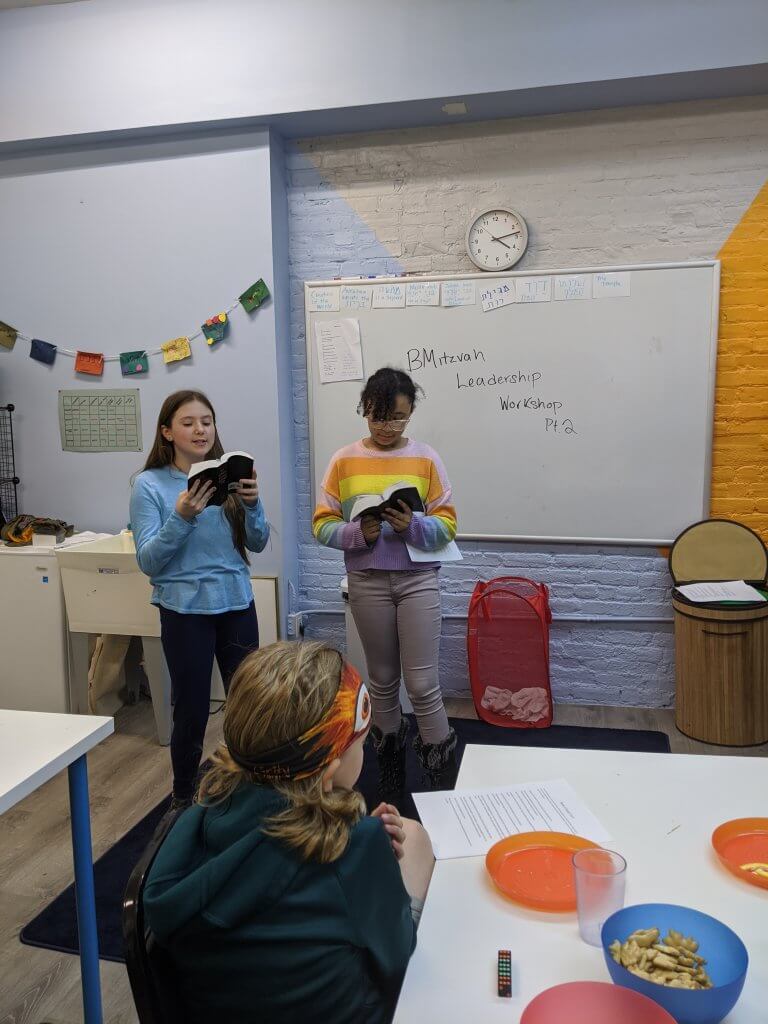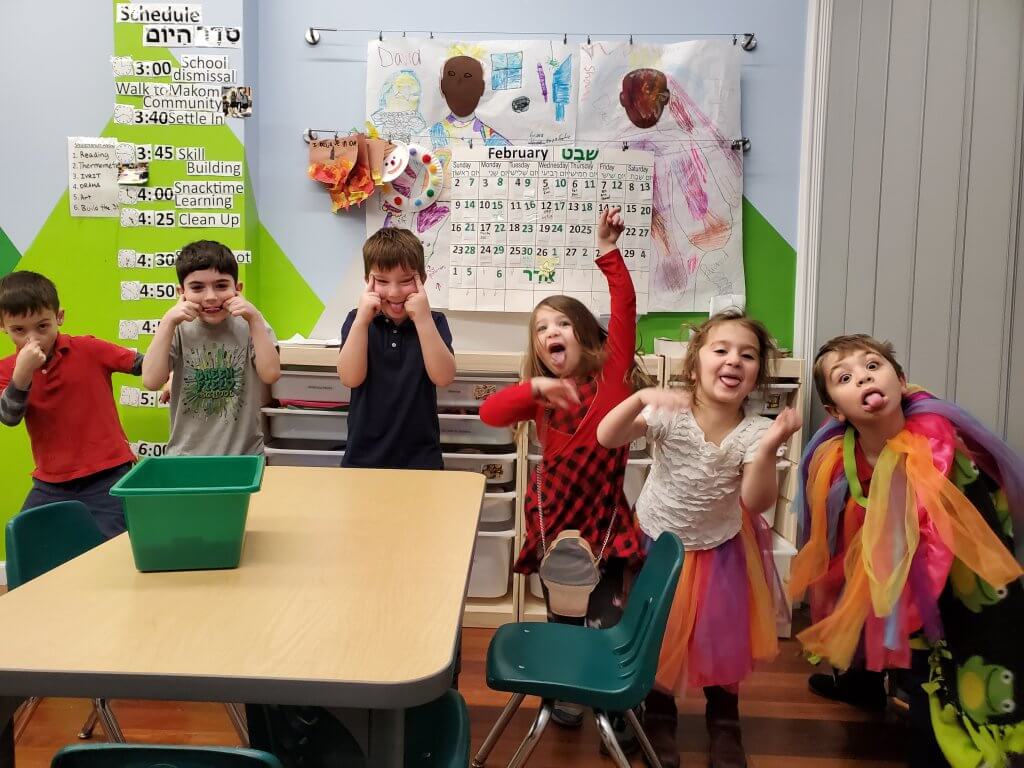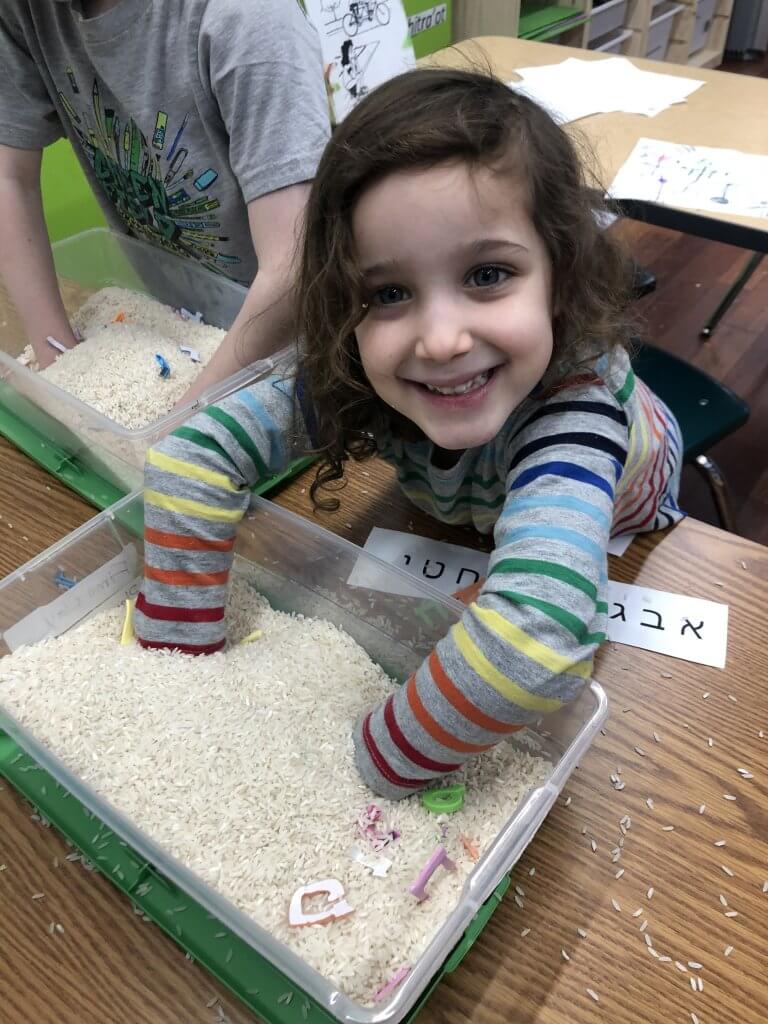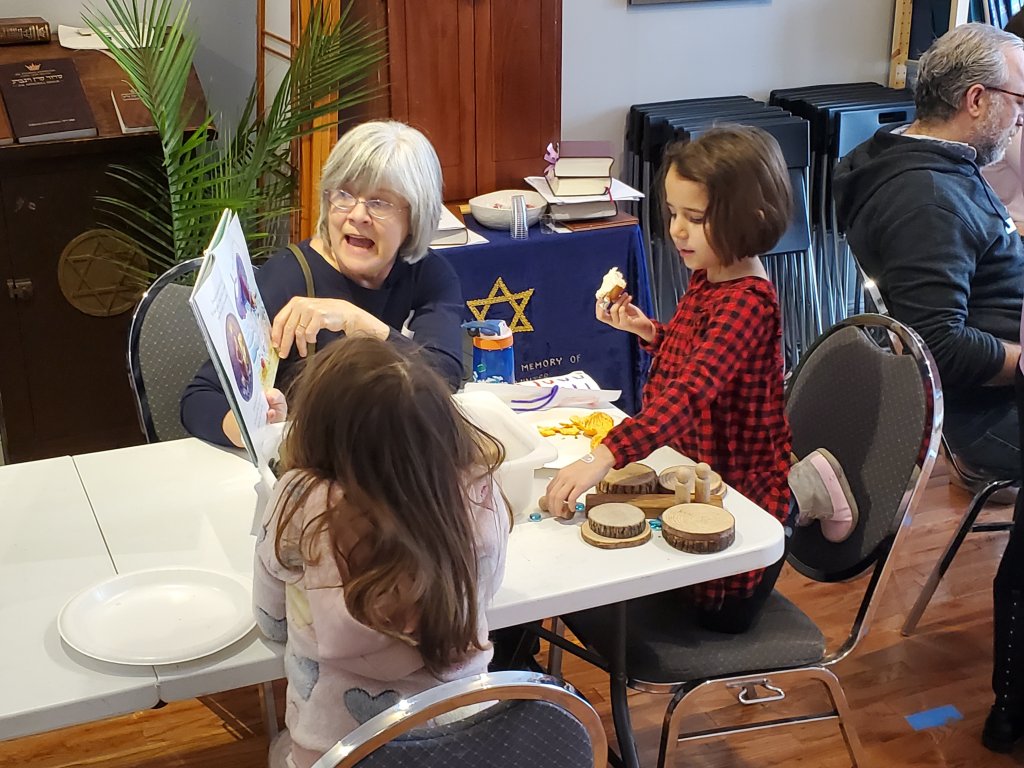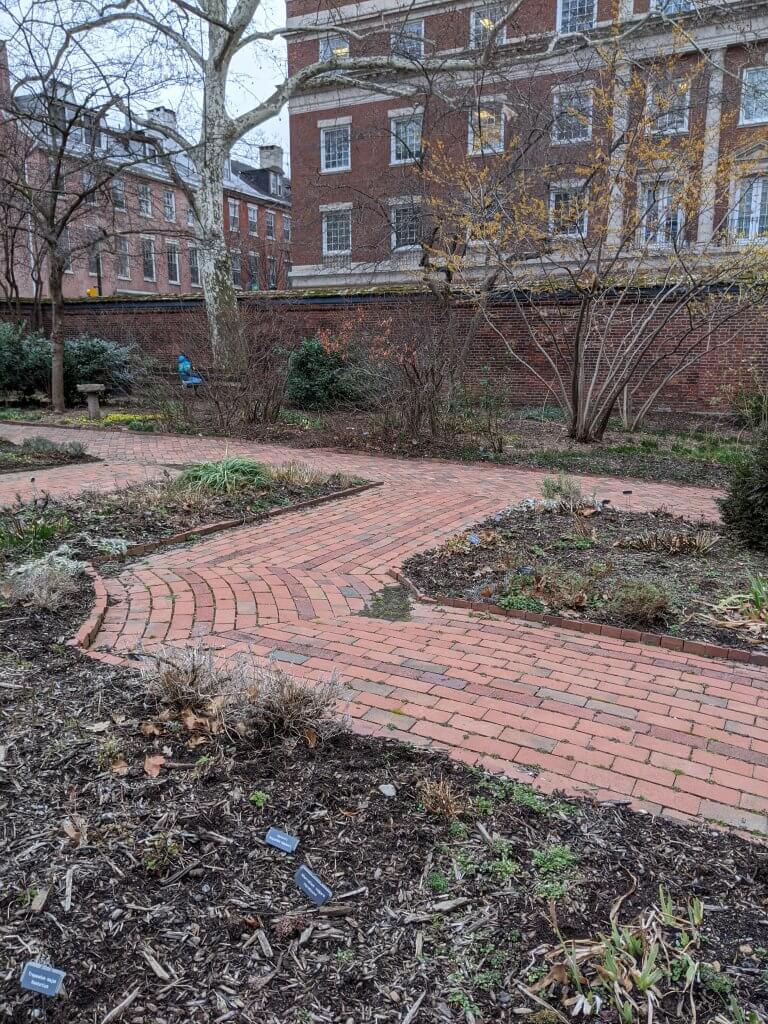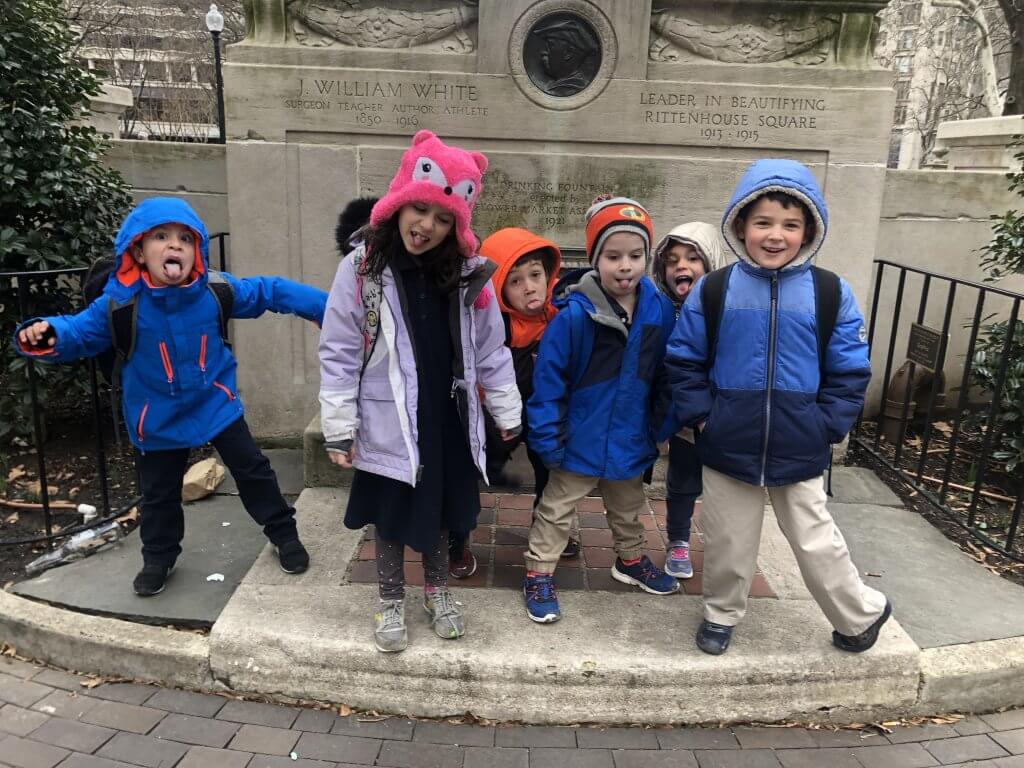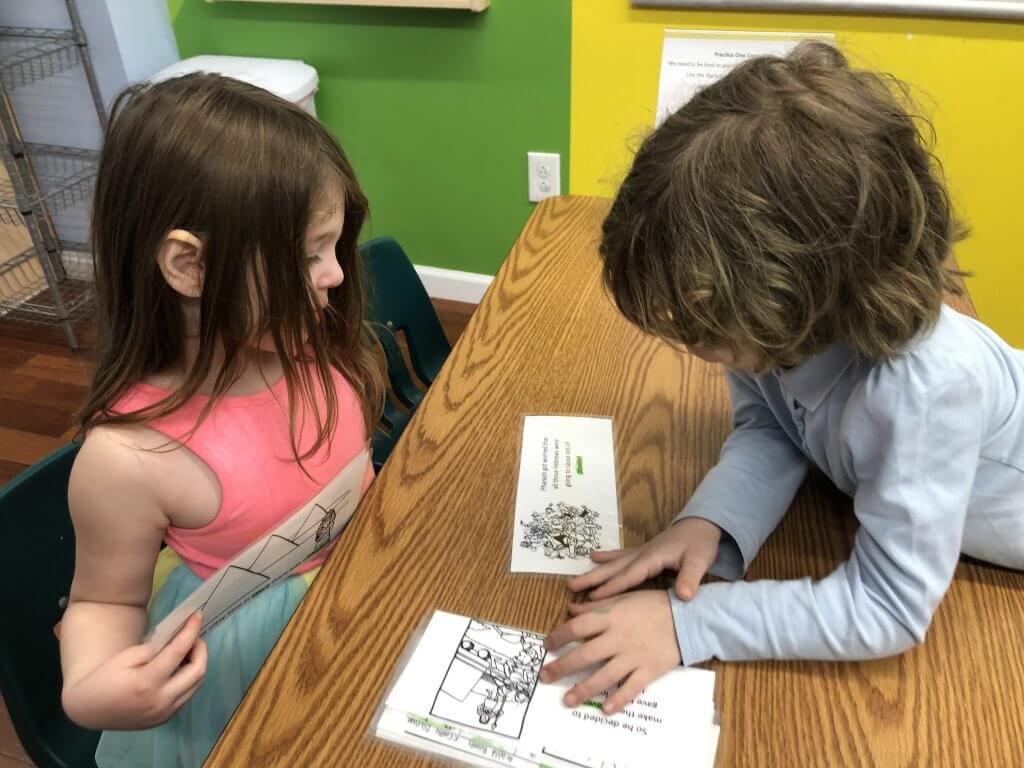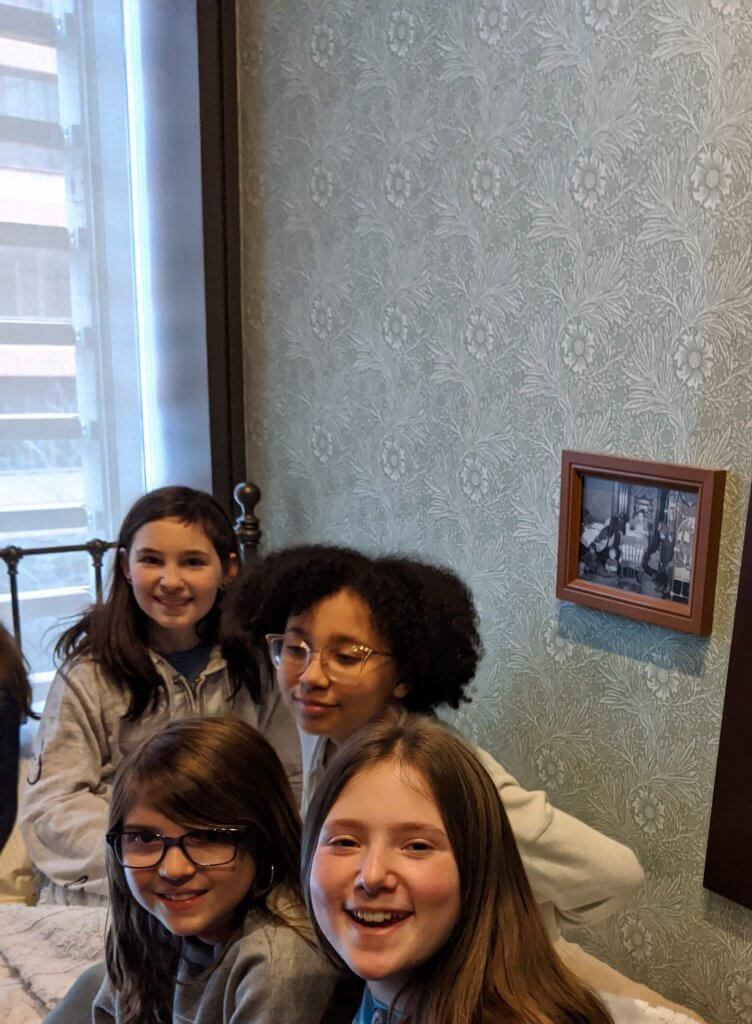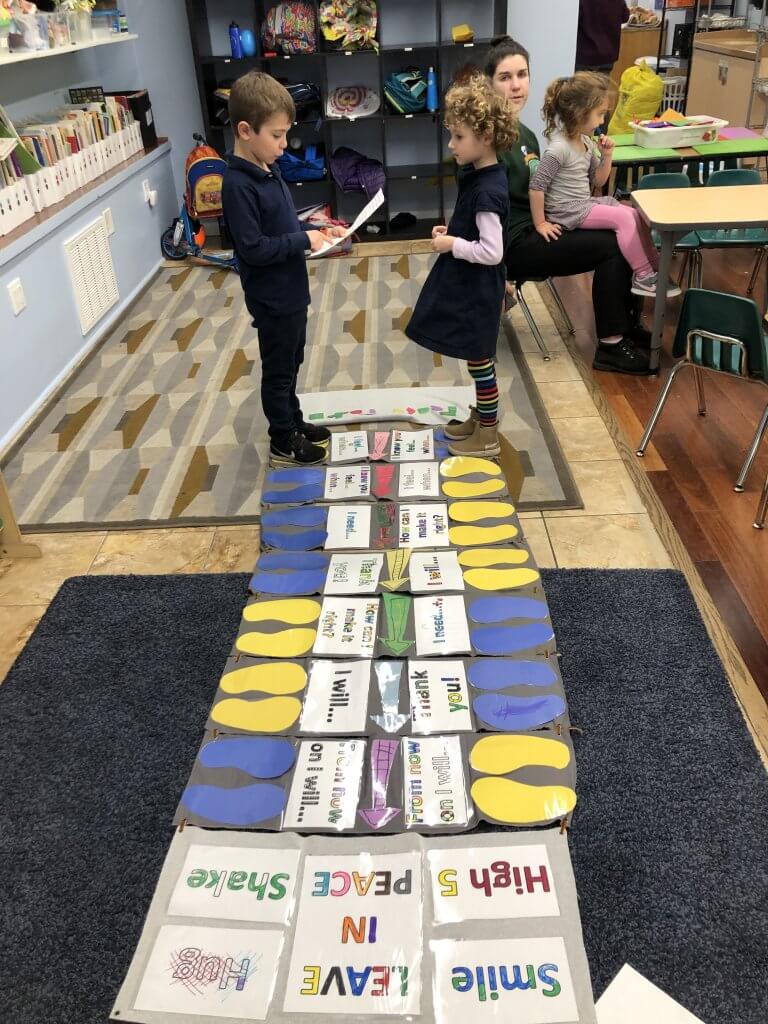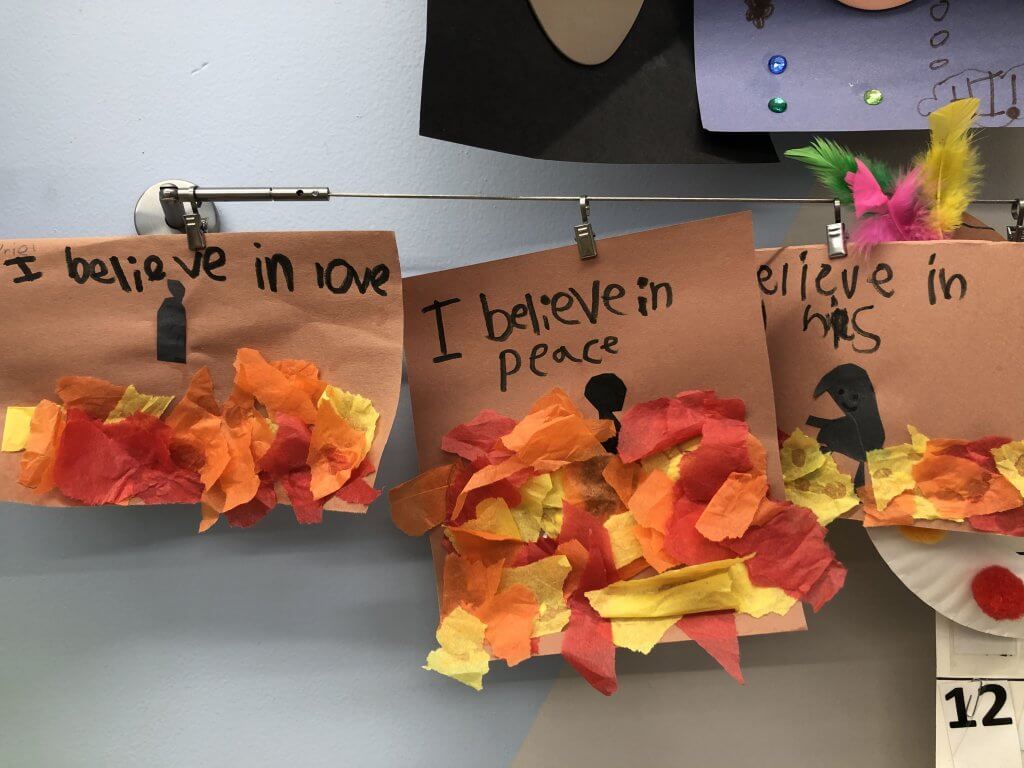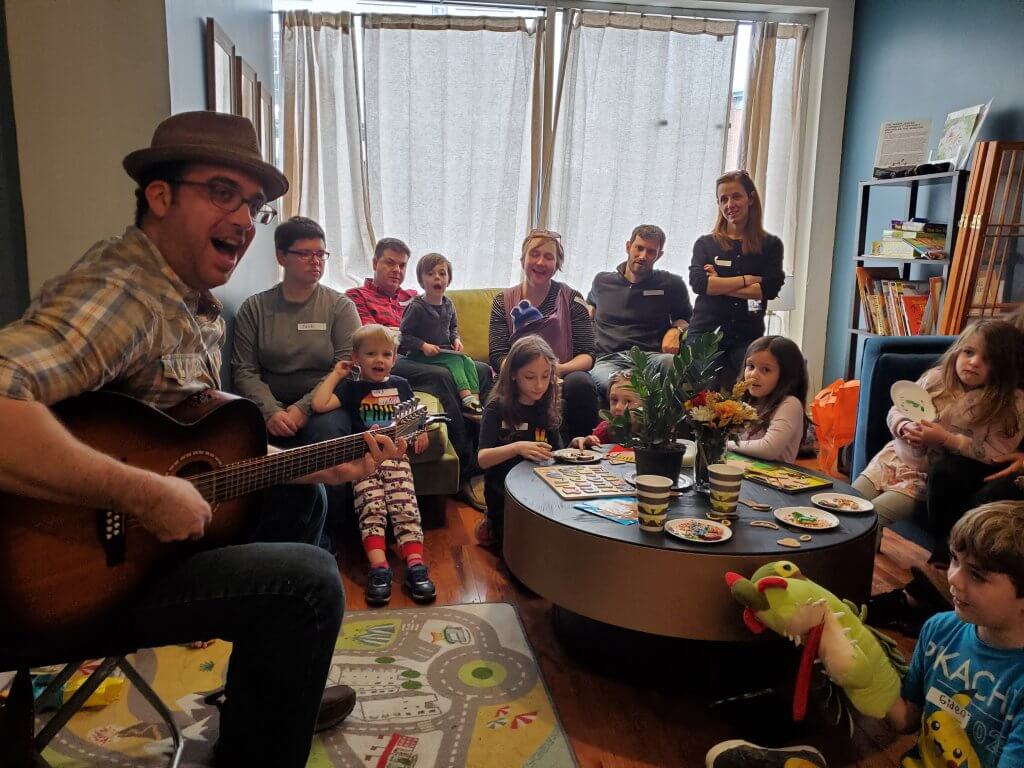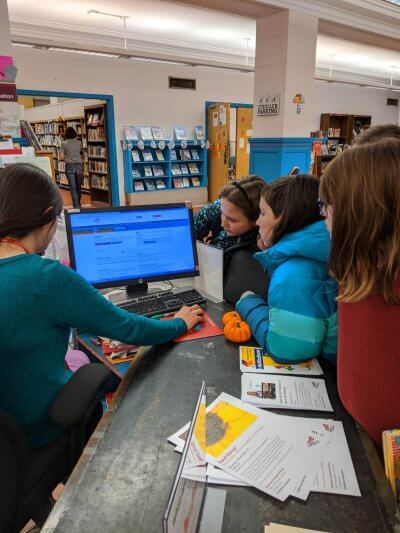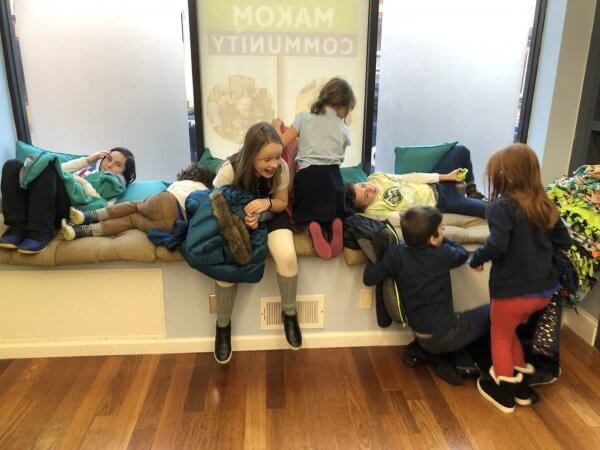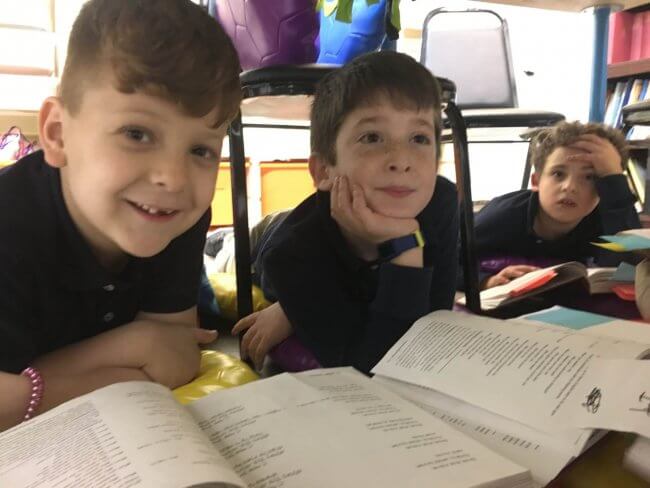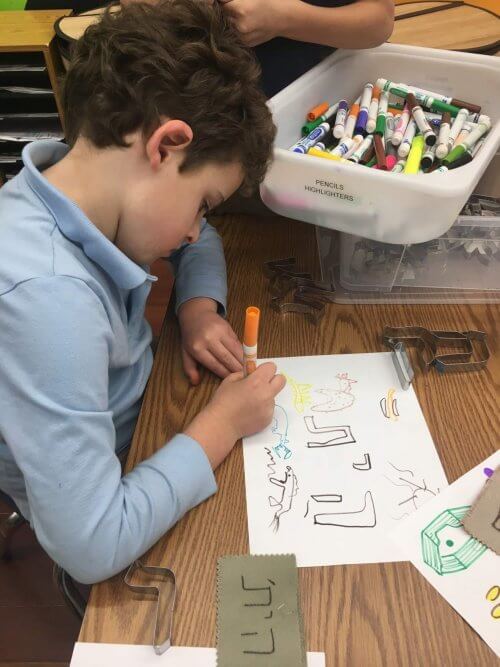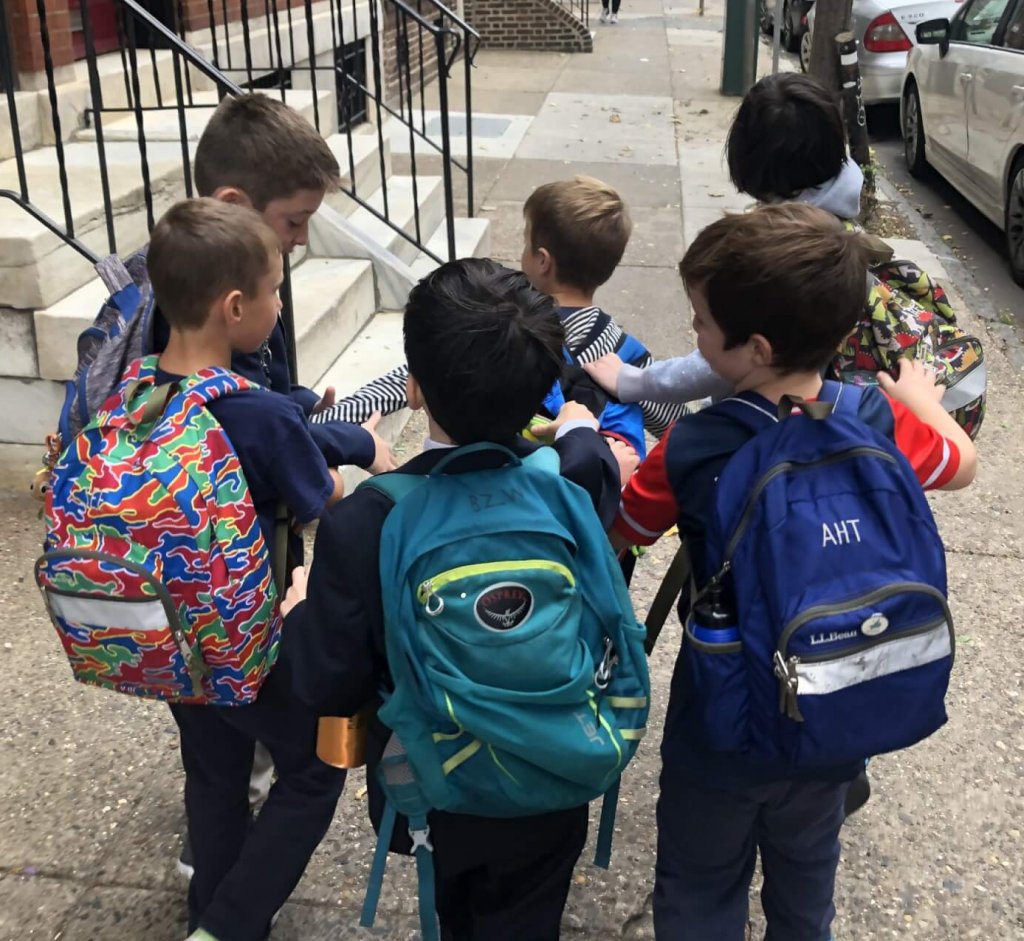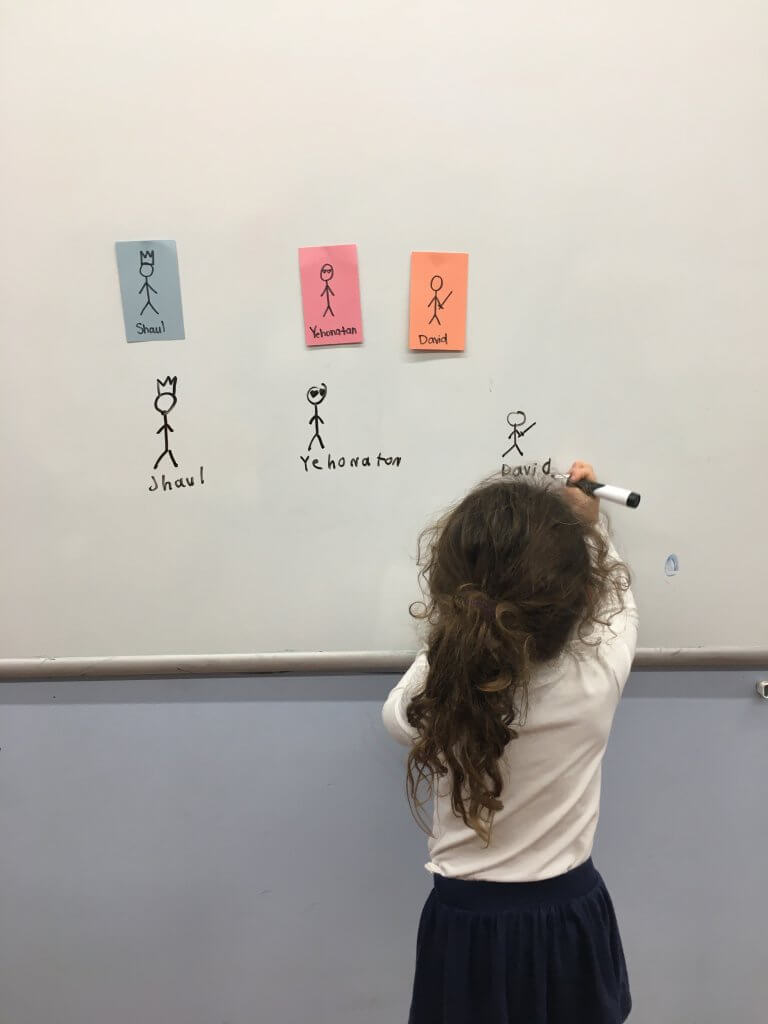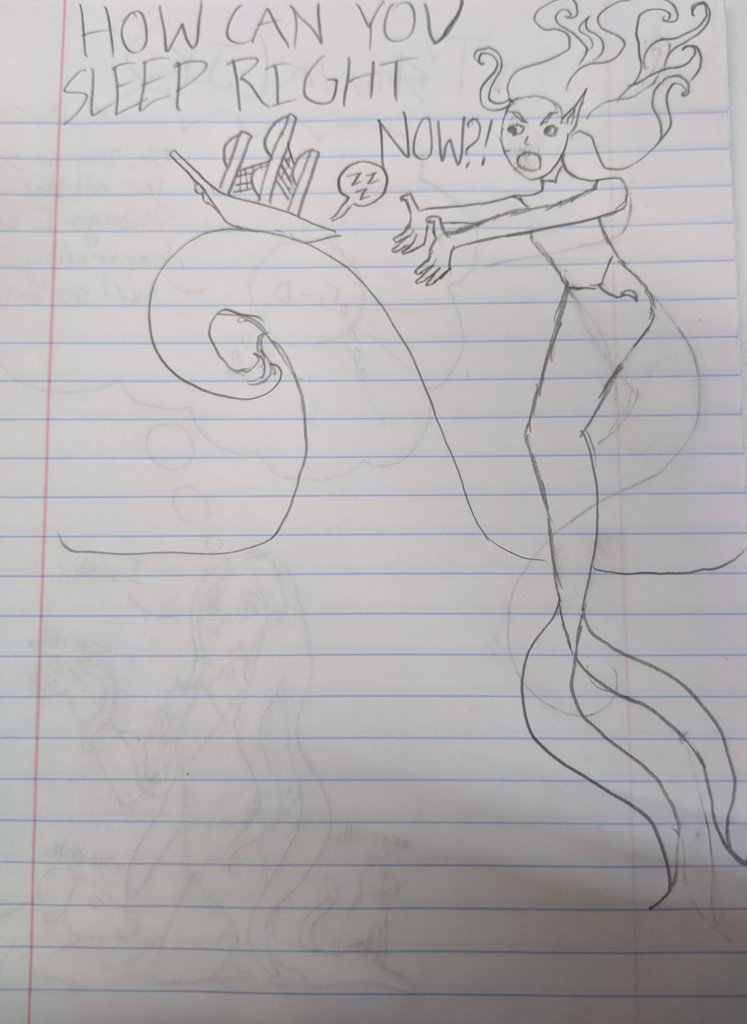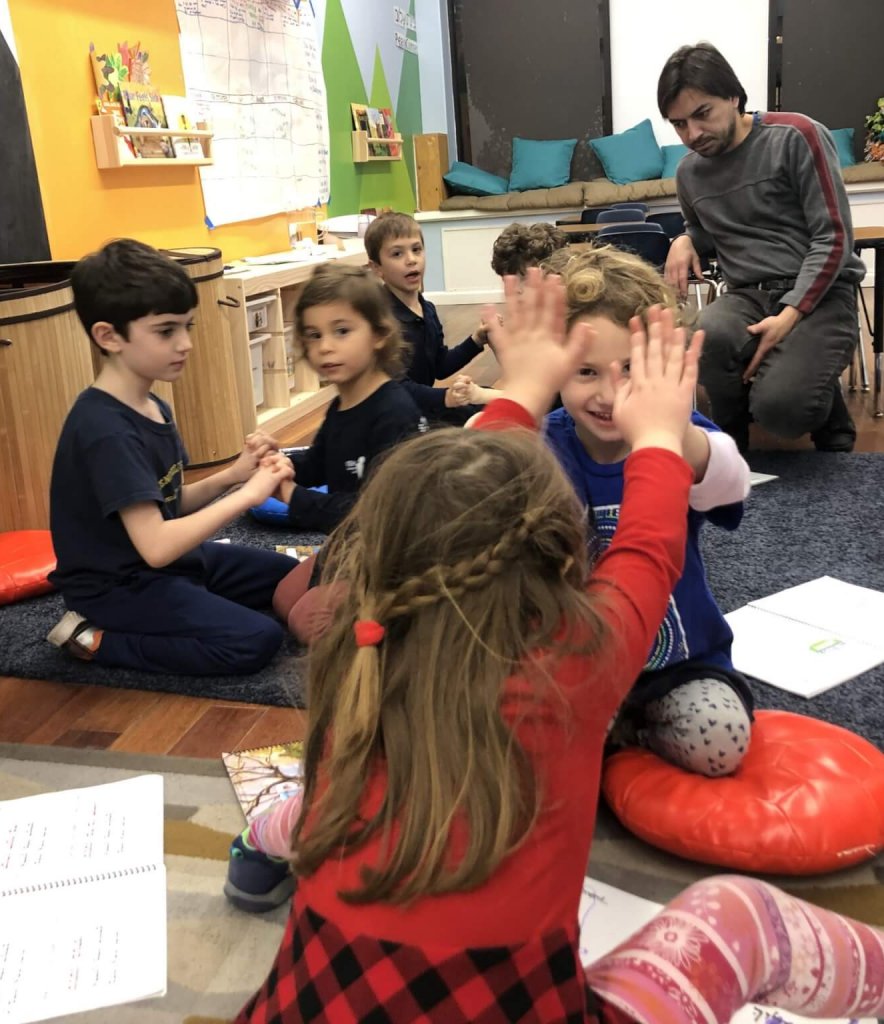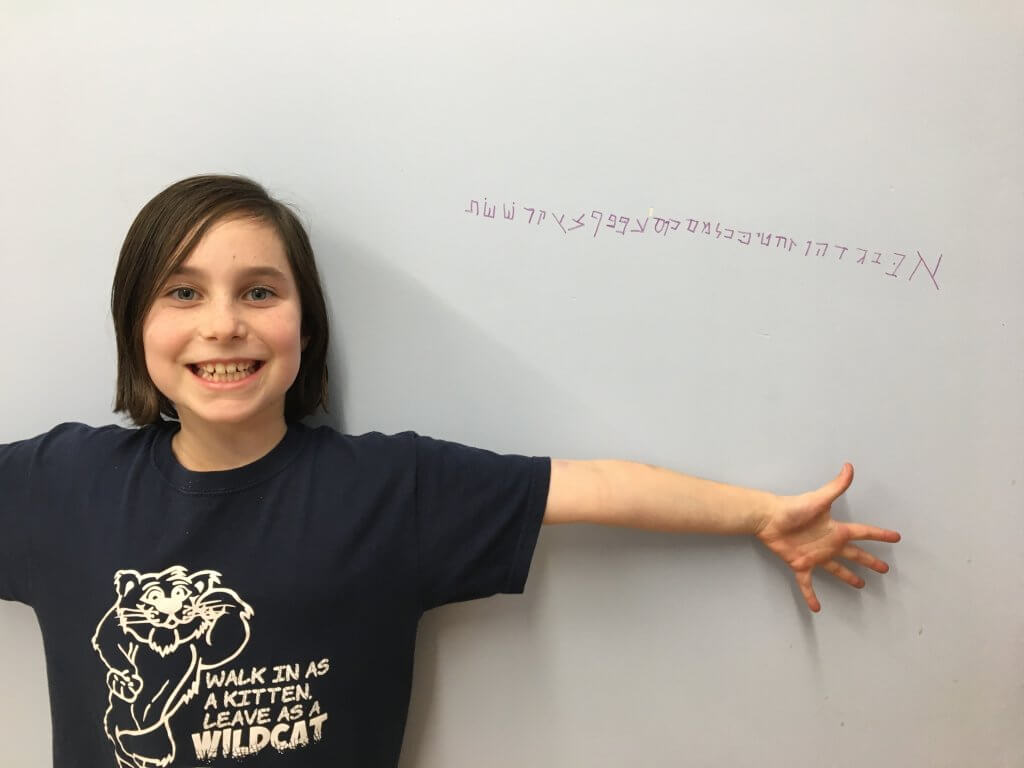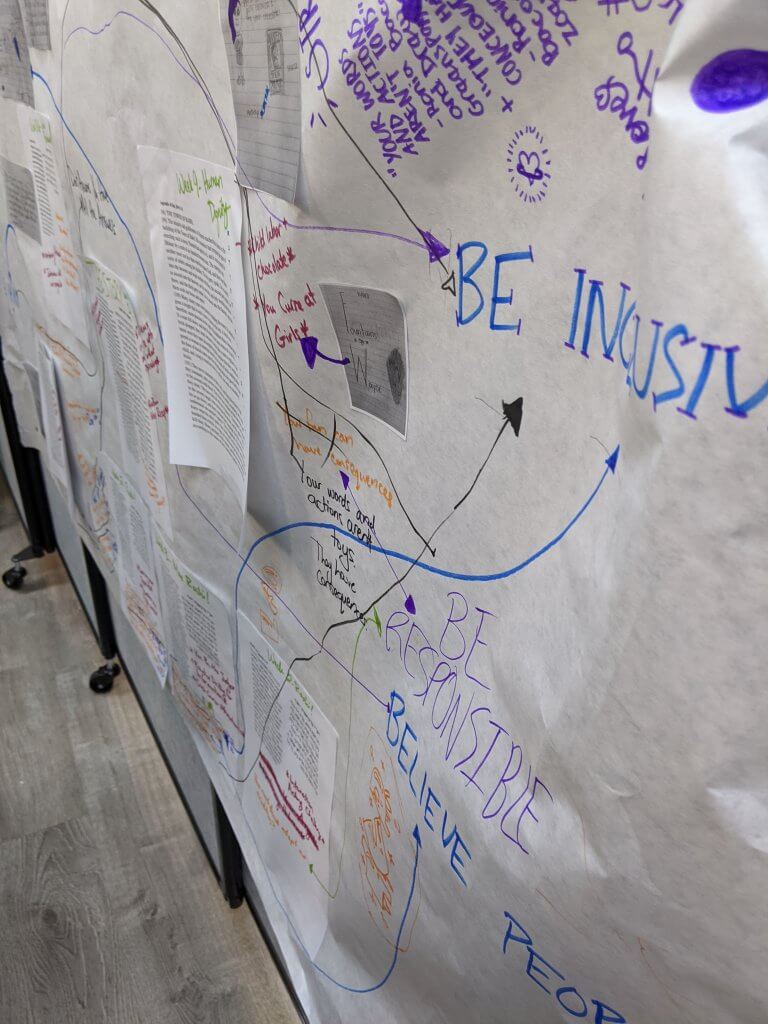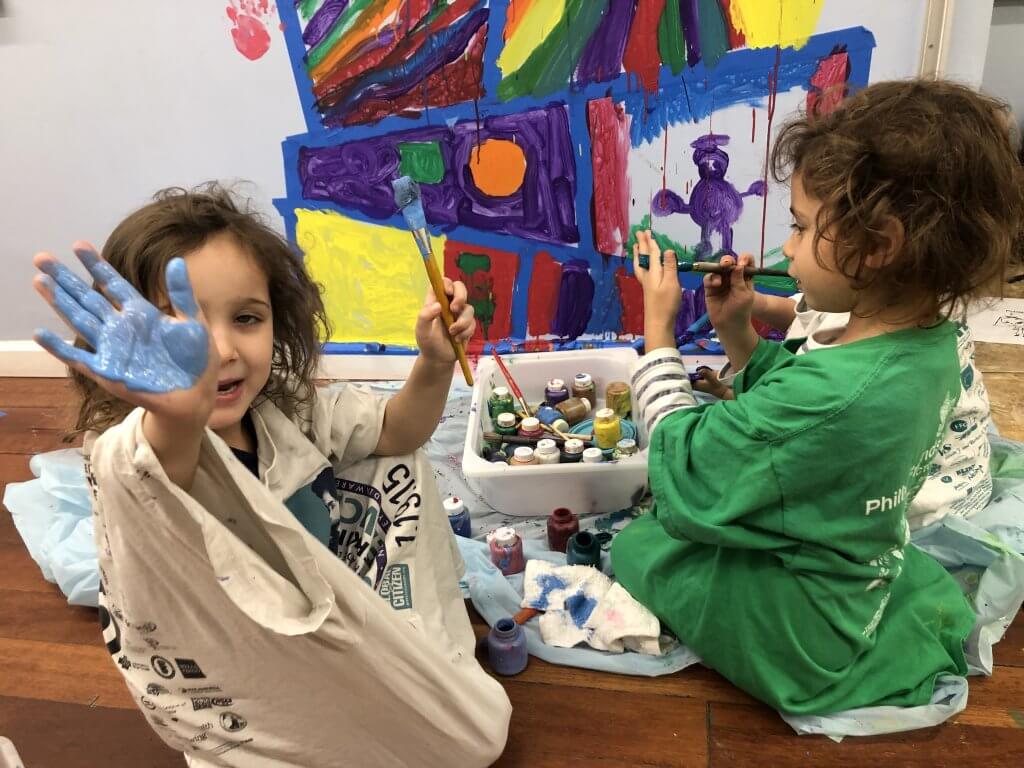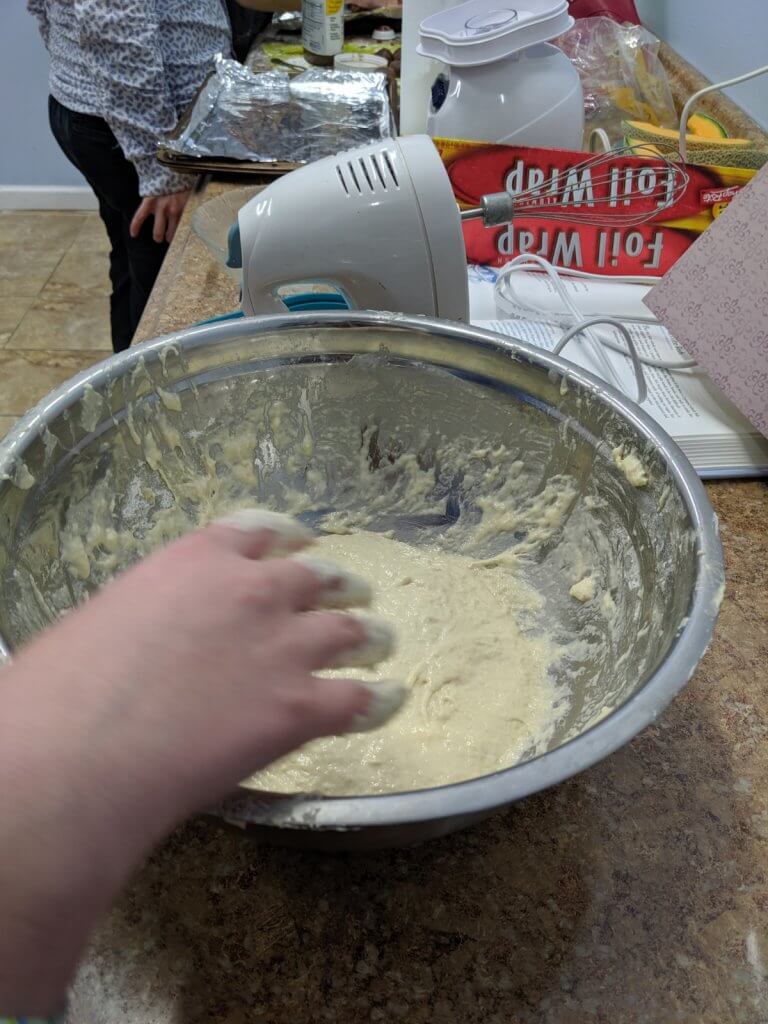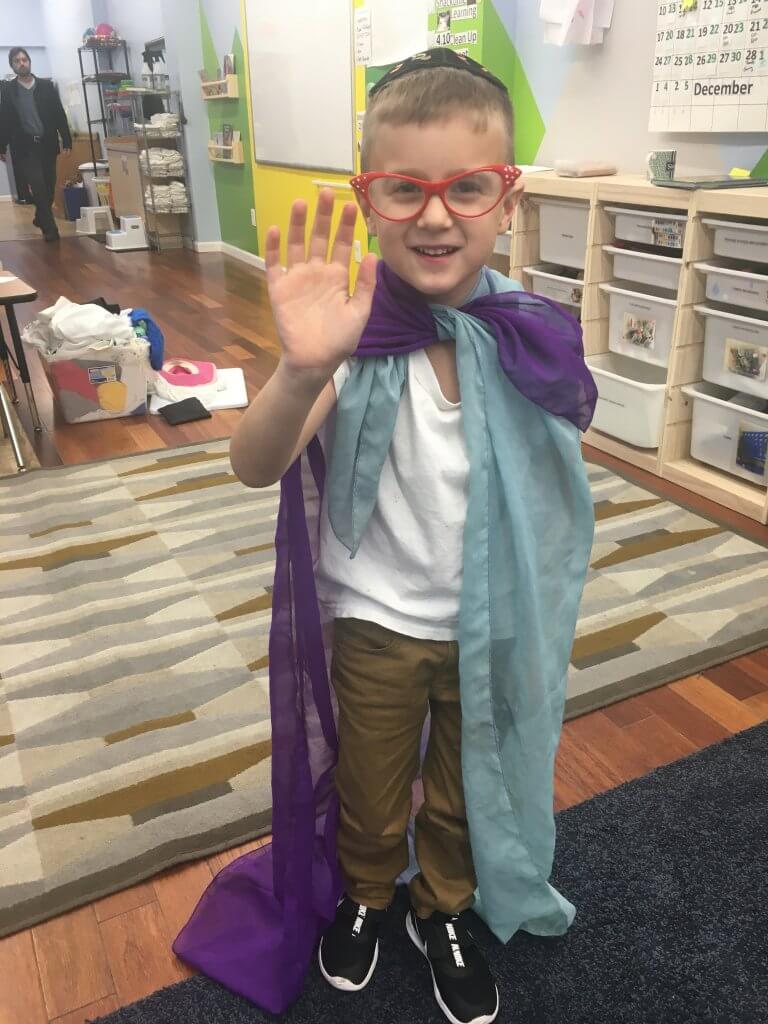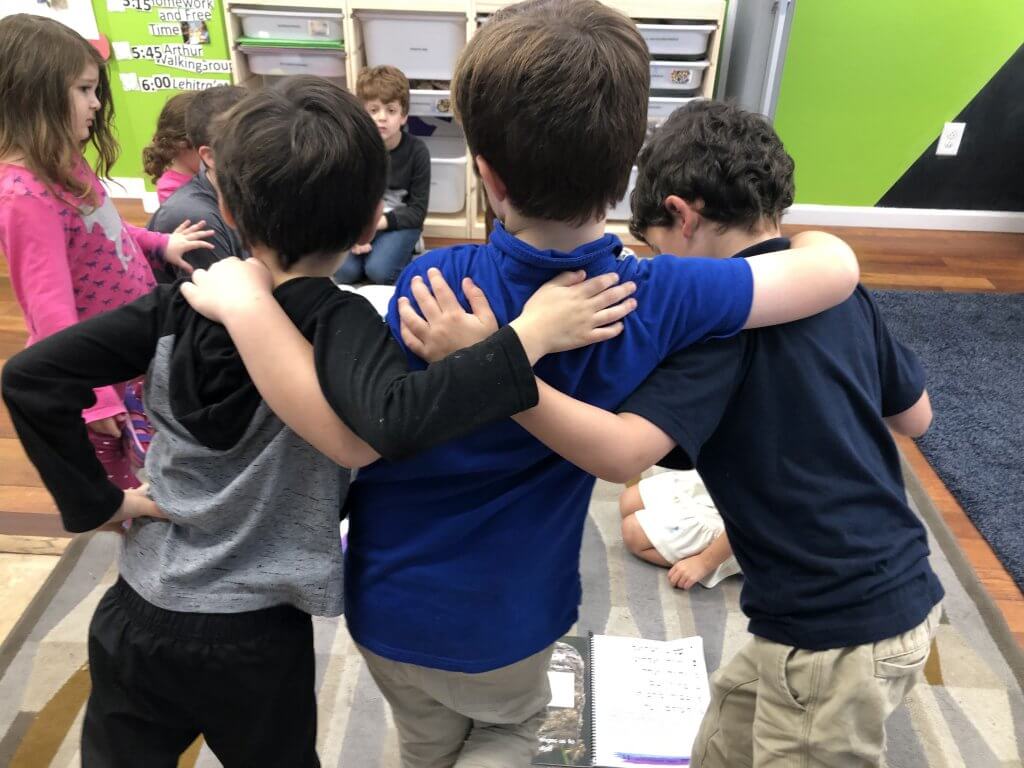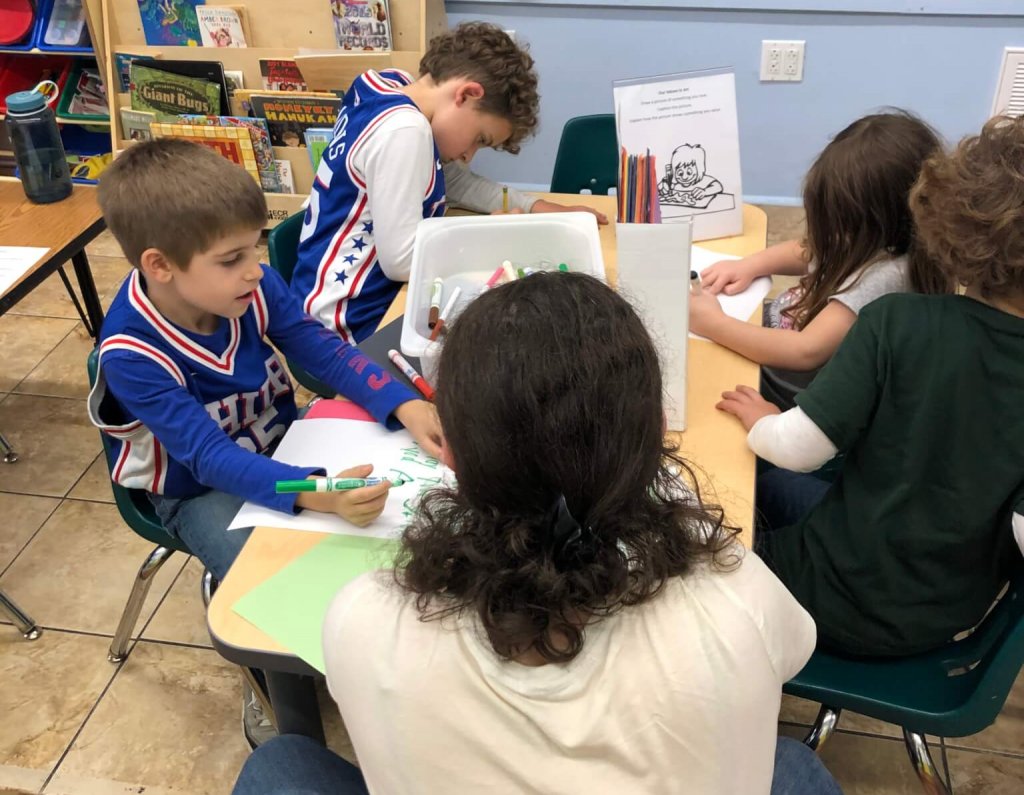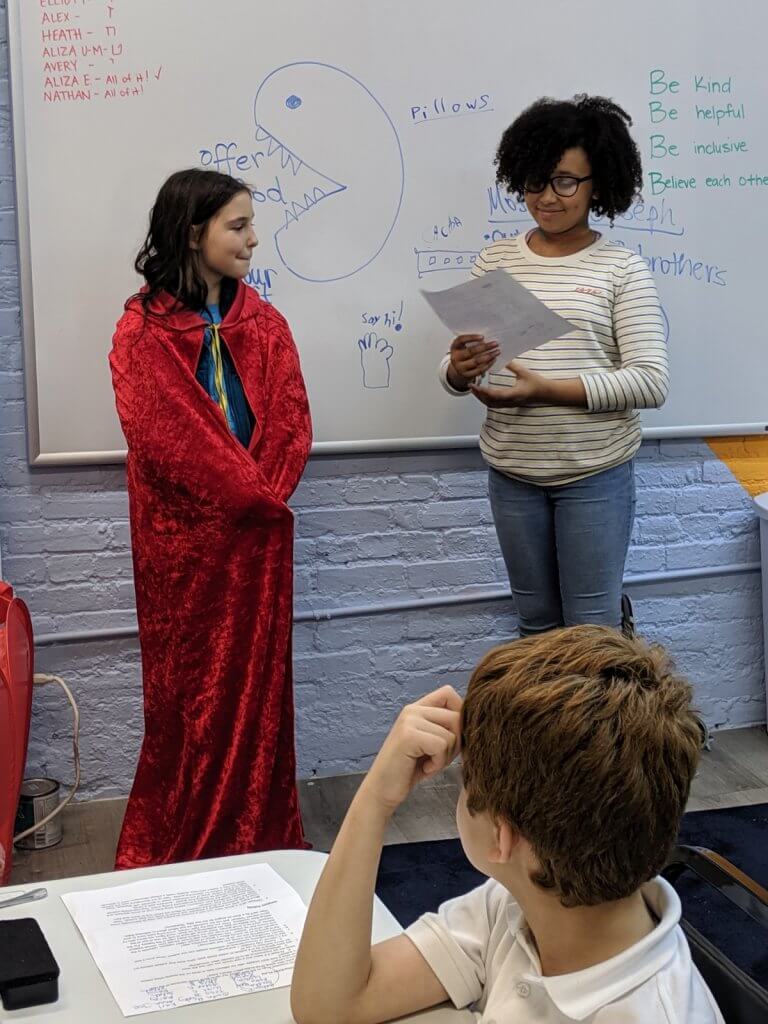Chag Purim Sameach – Happy Purim, everyone! We’ve had an amazing and hilarious time celebrating with your kiddos over the last few weeks. Here’s a recap of all the Purim-related fun we’ve had: Hamantaschen baking These tasty treats are always a crowd pleaser. We enjoyed filling them with all kinds of jam, nutella, and chocolate chips. The traditional triangle shape…
Category: Learning this Week
 Feedback for all, including God
Feedback for all, including God
“Is God good?” “What does God want from humanity?” Not the simplest questions to ponder on a Tuesday night, but our BMitzvah cohort and their parents dove in with open hearts. Following the theme of our current Rosh Pinah project, we focused on our questions about God. Our first activity exposed some of our conflicting feelings. We wrestled with those…
 Meeting Needs, Increasing Joy
Meeting Needs, Increasing Joy
Around Purim at Makom Community you’re likely to notice us jumping and dancing while singing MisheNichnas Adar marbin besimchah – in the Jewish month of Adar, our joy increases. What can we do to help ourselves feel joyful? One avenue to joy that we explored was getting our needs met. We differentiated between two types of needs: surviving needs and…
 Learning to Lead
Learning to Lead
“I never thought a third grader could change my perspective on Jonah…” One of the most powerful things we can learn is that we can learn from anyone! At the end of our study of the Book of Jonah, the BMitzvah cohort shared some of what we learned with the Nitzanim (2nd-4th grade) class. The BMitzvah students designed and taught…
 Mishe Mishe Mishe Mishe (Adar is Here!)
Mishe Mishe Mishe Mishe (Adar is Here!)
The time has come: MisheNichnas Adar Marbin Besimchah–when we enter the Jewish month of Adar, our joy is increased! Last week was full of extra silliness in honor of Adar. Ice cream for snack, an afternoon of playing and chalking in the fountain in Rittenhouse, tongue twisters, joke telling, spinning and marching our way through Tefilah: prayer, music, and movement,…
 Our Communities Need Us
Our Communities Need Us
Naomi’s family starts off their story living in Beitlechem. Because of famine, they move to Moav. Do you think they stop being a part of the Beitlechem community when they go? Do you think they fully integrate into a community in Moav while they’re there? Last week we took a deep dive into communities, which ones we’re a part of,…
 Taste of Makom: Sweet, Funny, and Full of Song!
Taste of Makom: Sweet, Funny, and Full of Song!
As families walked into 1733 E Passyunk Ave, they were greeted with an array of well-loved afterschool enrichment activities. But this time– parents and kids got to do them together. One grandparent read a book about King Solomon’s wisdom with her grandchild and some friends. Meanwhile, the children listening built the story out of natural building materials and then re-told…
 Are you there God? It’s BMitzvah!
Are you there God? It’s BMitzvah!
Sometimes we spend too much time thinking about something and not enough time experiencing it. In BMitzvah, we’ve been working on a new Rosh Pinah project about God: creating art pieces that express our personal theologies. We’ve been learning about how Jewish texts show different ideas of God: God as the authority, God as everything, God as all-good and all-powerful, God…
 Walk and Talk: Relationships to Community
Walk and Talk: Relationships to Community
What communities are Rut and Naomi a part of? What are their relationships like with those communities? This week we’re continuing to use their story to unpack our relationships with our communities. Want some ideas of questions to chat about with your kiddos? Read on to discover! At the beginning of the story, Naomi, Elimelech, and their two sons go…
 How We Take Care of The Ger (Other)
How We Take Care of The Ger (Other)
Why would the Torah repeat the same mitzvah (commandment) 36 times? That’s so many times! Maybe because it’s really important. Maybe because people are really bad at following it. Or both. Both is good. The Torah reminds us over and over again to treat gerim (strangers/others) well. Let’s find out what that has to do with the story from the…
 Our American Jewish Stories
Our American Jewish Stories
“Emma Lazarus! The New Colossus!” Drew pointed at the quote on the wall as we rounded the corner to the next gallery. “Give me your tired, your poor, your huddled masses yearning to breathe free…” read the famous quote. Drew told us about the quote’s position on the Statue of Liberty and Lazarus’ history as a writer, as Lazarous was…
 Giving, Getting, and Responding to Bad Advice
Giving, Getting, and Responding to Bad Advice
Have you ever given advice that you knew was bad? Have you ever accepted and followed advice that you knew was bad? Why do we do that? Let’s take a look at the last part of the Daniel story we unpacked and see what we learned. The Babylonians are out and the Persians are in. With them comes a new…
 I Believe in a Thing Called Love
I Believe in a Thing Called Love
Things really go south in the Jewish kingdom after Shlomo. People don’t like the next king, so the kingdom splits in two. And then, generations later, King Nebuchadnezzar and the Babylonians come and take over. Many of the Jewish elite are exiled to Babylon, including these four young men: Daniel, Hananiah, Mishael, and Azariah. Let’s see what their experiences and…
 South Philly FAQ
South Philly FAQ
Makom Community is growing! We’re opening a second location in the fall of 2020 in South Philly. Here are the answers to some of your frequently asked questions. Are we missing info that you’re looking for? Let us know! Q: Where will Makom Community’s second location in South Philadelphia be? A: 1733 E Passyunk Ave. We will be sharing…
 Those Who Learn From History…
Those Who Learn From History…
We all know that those who don’t learn from history are doomed to repeat it. But what about those who do learn from history? My experience with our last Rosh Pinah unit on American Jewish History tells me that they are doomed to ask provocative questions. How can we re-balance the record and put women’s voices to the front? Can I design an…
 Cut the Baby in Half: Conflict Resolution with King Shlomo
Cut the Baby in Half: Conflict Resolution with King Shlomo
Shlomo is known for being one of the wisest people ever! People came from all over the world to listen to his just decisions and to help them solve their conflicts and difficulties. Last week we unpacked Shlomo’s wisdom about a particularly famous case and extrapolated some great ideas about conflict resolution in general. Take a look at the following…
 Leading Wisely: Lessons from Shlomo and our Learners
Leading Wisely: Lessons from Shlomo and our Learners
King Shlomo was well known for a few things: he built the Temple, he was super wise, and he wrote a lot of songs and poems. Last week we took a deep dive into the wisdom Shlomo exhibited in his leadership style in order to get the Temple built. Here are some of the discoveries we made, and some of…
 Honoring Those Who Matter (Spoiler: It’s Everyone)
Honoring Those Who Matter (Spoiler: It’s Everyone)
Who remembers what commentary is? We do! It’s when someone asks a question about a text or a story and then creates an answer to it. We learned a lot of commentaries about Migdal Bavel (the Tower of Babel), and last week we were at it again. We unpacked three commentaries about David. They all deal with noticing and appreciating the things…
 David Commentaries Walk and Talk
David Commentaries Walk and Talk
Do you remember what a midrash is? It’s a commentary, a story made up to answer a question about a text. Midrash isn’t just for Torah text! This week we’re learning a few commentaries about David. Check out what we’re exploring below! Two of the midrashim we’re looking at this week explain to us that David couldn’t understand why God…
 Choosing Family with Unconditional Love
Choosing Family with Unconditional Love
Our story this week zooms in on the unique relationship between Shaul’s son Yehonatan and David. They meet after David defeats Goliath, and the text tells us that Yehonatan’s soul becomes bound up with David’s soul. Yehonatan loves David like himself. The two of them make a brit (two-way promise) together. Yehonatan gifts his cloak, sword, belt, and bow to…
 BMitzvah and the Mystery of God
BMitzvah and the Mystery of God
Have you ever watched a ship be tossed in the waves of the ocean? Take a second to watch a video of this terrifying sight. Then tell me, would you curl up in the ship and fall asleep? The prophet Jonah does a lot of things that our class has struggled to understand. Why would a prophet run from God?…
 Dear David: 3000 Year-Old Relationship Advice
Dear David: 3000 Year-Old Relationship Advice
Our story this week is a tumultuous one. Shaul is convinced that David is trying to steal the throne from him, so he sets out with 3000 men to hunt David down. Shaul coincidentally wanders into the cave where David is hiding, and David has an opportunity to kill him. Instead, he cuts off the corner of Shaul’s cloak. David…
 Our Case for Hebrew Literacy
Our Case for Hebrew Literacy
Why do we bother learning Hebrew here at Makom Community? Why is it important? How does Hebrew help us access the Jewish text and tradition that forms the foundation of our learning? One answer, provided to me by one of the Garinim (preK and K kiddos), is that it’s about Tefilah: Prayer, Music, and Movement. We sing a lot of…
 Rely on Your Instincts: Next Level Community Building
Rely on Your Instincts: Next Level Community Building
“Here at Makom Community, we talk a lot about how to manage conflict. And I know if I need to step away and take time out, my friends will understand.” It’s amazing to see a group of preteens form as tight of a community as our BMitzvah cohort has. When I met them at the beginning of the year, I…
 Putting People First: The Makom Community Brit
Putting People First: The Makom Community Brit
Way back in September, our learners started exploring the text of Migdal Bavel (the Tower of Babel). Over the course of the last three months we really dug into that text and pulled it apart. We looked to the people in the story for examples of some great ways to treat each other and some not-so-great ways to treat each…
 Cooking Up Understanding
Cooking Up Understanding
“This doesn’t look at all like what it’s supposed to look like!” “It’s too thick.” “It’s too thin.” “I don’t know what the batter is supposed to look like.” “Why don’t you try this?” Nothing is more stressful than things not going to plan in the kitchen. Our BMitzvah Rosh Pinah (cornerstone) projects test the limits of our ability to…
 Bein Adam LeChavero: Loving the Godliness in Everyone
Bein Adam LeChavero: Loving the Godliness in Everyone
Some actions affect our relationship with God. In Hebrew we call those bein adam lamakom (“between a person and God”*). Some actions affect our relationships with other people. Those are called bein adam lechavero (“between a person and their friend”). We looked at some of the actions we do at Makom Community and thought about whether they affect our relationships…
 Peace, Love, and Makom Community
Peace, Love, and Makom Community
There’s a midrash (commentary) that the people who built the Tower of Babel weren’t punished as harshly as the people who lived during the Flood. Those people were destroyed entirely – totally wiped out. The people who built the tower, though, they stayed alive, but had to spread out and speak lots of languages. Why were the consequences for their…
 People First: What do we value?
People First: What do we value?
What’s more valuable: a person or a brick? The answer, according to this week’s text, might surprise you. Do we value people? What actions and choices can we make to show it? This week we explored a midrash (rabbinic exploration of a textual question) that tried to answer the question: what was so bad about the people building the Tower…
 Learning to Become: The BMitzvah Cohort play Ushpizin
Learning to Become: The BMitzvah Cohort play Ushpizin
Sukkot at Makom Community this year spurred discussion about welcoming: How do we welcome guests and why? What does it feel like to welcome or be welcomed? Our BMitzvah students delved deeper into the history of the welcoming ushpizin by becoming ushpizin ourselves! Our initial research about the ushpizin brought up some challenging questions and feelings. Why, traditionally, do we…

